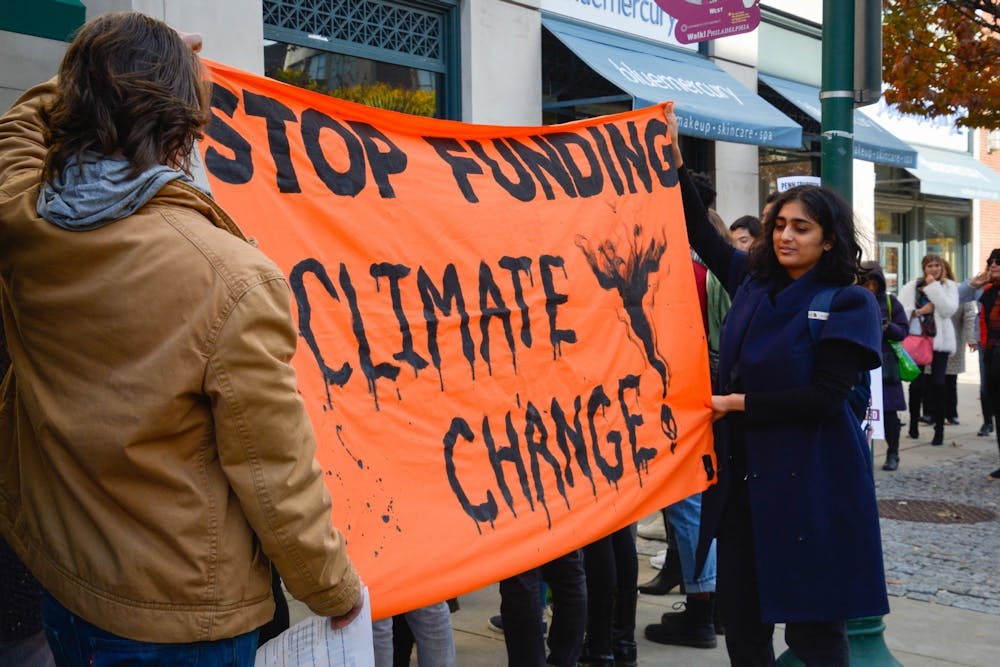Fossil Free Penn has launched the “Know Our Demands” campaign to teach the Penn community about the importance of divestment and work toward environmental justice.
During the next month, FFP plans to dedicate a week to highlighting each of their five demands using social media posts and in-person teach-ins, College sophomore and FFP coordinator Melissa Murin said.
College sophomore and FFP coordinator Sarah Sterinbach described divestment as “not only removing the $922 million that Penn has invested in the fossil fuel industry, but proudly and loudly acknowledging that the fossil fuel industry has destroyed lives.”
FFP originally introduced the “Know Our Demands” campaign in 2020, when it was known as the divestment campaign. This year, FFP reworked the focus of the campaign to highlight social justice, expanding it to include five demands instead of just divestment, according to Murin.
"Divest from fossil fuels and all destruction for profit" was the first demand, which FFP shared on its Instagram last week. This week, FFP is demanding that the University "cut all ties" to the fossil fuel industry.
“There’s no point in divesting if Penn still has companies like ExxonMobil at job fairs and the chemistry and geology departments have ExxonMobil job postings on their sites,” College senior and FFP coordinator Katie Collier said.
Sterinbach said that FFP will explain the remainder of the demands, which are to “repair, reinvest, and democratize,” in more detail on the FFP Instagram in the coming weeks.
According to Murin, the campaign aims to educate the Penn community about its demands and to show students that the University can impact the West Philadelphia community.
RELATED:
About 100 Fossil Free Penn members shut down Board of Trustees meeting
M. Elizabeth Magill to become Penn's ninth president, succeeding Amy Gutmann
Murin said that FFP has felt that the University administration has failed to listen to its requests in the past. She added that FFP hopes to "capitalize on the change in administration," and make its stance clear to the next Penn president, M. Elizabeth Magill, who is set to begin her tenure on July 1.
“We have shared these demands with administration, in particular President Amy Gutmann,” Murin said. “It is notorious that they have not listened to us even after we barged into a board meeting and staged sit-ins all throughout 2019. We are hoping that by making the Penn community more aware of these demands, and hopefully more invested in them as well, that we can show the new president that the Penn community is serious about divestment and making Penn a more ethical organization.”
FFP is hosting a community roundtable event on Feb. 24 where West Philadelphia residents will speak with students about how Penn’s actions have influenced them and the importance of the University's divestment, Sterinbach said.
“We are trying to teach students what it looks like to try to actively repair the community from the damage that Penn has done," Sterinbach said. "We want to have students and community members involved in [these] decisions.”
Sterinbach said that Penn has an obligation to the community and an opportunity to be a leader in divesting from the fossil fuel industry moving forward.
"Fighting for climate justice is not just about a switch to green energy, and it is not just about a divestment from fossil fuels," Sterinbach said. "In order to get climate justice, we need to get justice for the people that Penn has gentrified the area from.”









